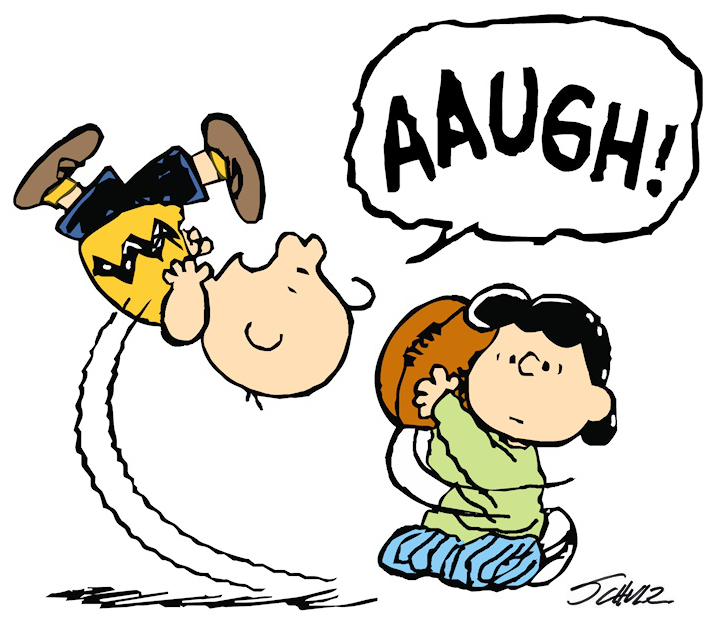Policing Language Gives Ammunition to the Trolls
Don't make the world responsible for your emotional well-being unless you enjoy getting hurt.


Could Facebook Chief Operating Officer Sheryl Sandberg have known there would be a big backlash when she embarked on her campaign to ban the use of the word "bossy" to describe the behavior of assertive women and young girls in particular? Her statistics have been criticized as cherry-picked or debunked, and the movement has been roundly mocked, resulting in an increase of the word "bossy" being tossed around (and at Sandberg). It seems likely that despite Sandberg's efforts, "bossy" will not be joining "bitchy" in the list of words forbidden in polite company.
As COO of Facebook, surely she's familiar with certain types of Internet behavior, namely that of trolls. Once a term used mostly by fans of the fantasy genre, "troll" is now used to refer to people who deliberately try to stir up trouble and mayhem on the Internet and through social media. The term has even been made into a verb. It has leapt off the Internet to describe anybody (particularly politicians and pundits) whose behavior seems designed to stir up controversy rather than conversation. Women who are active online tend to be a frequent target of nasty attacks from trolls, and the names they get called make "bossy" look like a compliment. Sometimes the harassment spills over into real life in creepy, sometimes threatening ways.
So why did Sandberg attempt such a misguided effort? She's probably been called "bossy" in the past few weeks more than she ever had been growing up. There's some theorizing that Sandberg, a Hillary Clinton supporter, wants to short-circuit some of the critical language Clinton will face should she run for president again. That seems a bit of a long bridge to trudge across to make political hay out of the "ban bossy" effort. It's more likely that Sandberg means what she says. She doesn't like the word and she thinks it's hurtful.
But her approach to trying to ban the use of "bossy" highlights a troubling issue that's become an extension of the "language police" culture. Sandberg and those who approach communication this way are saying that the community as a whole is responsible for the emotional well-being of its citizens, that millions of people she's never met can affect her attitude and mental health with the language that they use. Not only are hundreds of millions of people unwilling to embrace this philosophy in the first place; it's essentially giving the people of the world (especially the trolls) a blueprint on what to say to really hurt you.
Consider a study just last fall from the University of Texas. Researchers determined that schools that had developed anti-bullying programs actually saw more bullying than schools without programs. How did that happen? The kids used the examples of bullying they were shown as a template, not a warning. From the college's own coverage of the report:
"One possible reason for this is that the students who are victimizing their peers have learned the language from these anti-bullying campaigns and programs," said Seokjin Jeong, an assistant professor of criminology and criminal justice at UT Arlington and lead author of the study, which was published in the Journal of Criminology.
"The schools with interventions say, 'You shouldn't do this,' or 'you shouldn't do that.' But through the programs, the students become highly exposed to what a bully is and they know what to do or say when questioned by parents or teachers," Jeong said.
The researchers also pointed out that boys are more likely to be victims of physical bullying, and girls, emotional. Most parents would expect adults to intervene in instances of physical bullying. Verbal and emotional bullying becomes a more complicated matter. Here's how one school defines the two of them:
Verbal: Verbal bullying involves speaking to a person or about a person in an unkind or hurtful way. Examples include: sarcasm, teasing, put-downs, name calling, phone calls, spreading rumors or hurtful gossip.
Emotional: Emotional bullying involves behaviors that upset, exclude, or embarrass a person. Examples include: nasty notes, saying mean things using technology (e.g. cyber bullying using emails, instant messaging), chat rooms, tormenting threatening, humiliation or social embarrassment.
Certainly these are behaviors adult caretakers want to discourage in the strongest terms and even discipline. But as we grow up, "physical bullying" becomes "assault and battery" and the law gets involved. Verbal and emotional bullying becomes … what exactly? Part of becoming an adult is learning how to appropriately deal with environments where this behavior happens. This doesn't necessarily mean, "Suck it up, you little baby." Rather, as adults, we are expected to be responsible for managing our emotional well-being. That includes learning how to be around others or adapt to others who simply don't give a damn about our feelings.
These calls to ban words, these references to all behaviors that make us feel bad as "bullying," and the very concept of "trigger warnings," an Internet/college phenomenon where the public is expected to warn adults in advance that they may talk about issues (like assault) where some may have personal, traumatic experiences, push the responsibility for individuals' well-being onto the world around them. Not only is this unrealistic nonsense, it is an abnegation of one's own ability to thrive and cope in a complex world. It is the opposite of evolution and maturation.
And it's dangerous. That is what the trolls know. "Don't say these terrible things that wound me psychologically," we say. "I'm going out of town for a week and keeping my door unlocked. Please don't rob my house," is what the troll hears. Obviously, we want the people who matter in our lives—our family, friends, children, co-workers—to respect us and not use hurtful language against us. It's perfectly reasonable to ask your significant other or your children not to call you or anybody else "bossy." But the world at large doesn't care about your emotional state. They have their own problems to deal with. Don't expect strangers to care what you think about the word "bossy" any more than they care what you think about the weather, the upcoming elections, or last night's episode of Scandal. The strangers who do pay attention may well be jerks looking to use your publicly revealed vulnerabilities to screw with your head.


Show Comments (78)